QuestionMy cokatiel just laid her first egg (unfertilized). I think I have even more respect for her now! Should I expect any differences in her behavior? How can i take better care of her? I know it takes a lot of nutrients for her to lay an egg. Thanks for your time and hope to hear from you soon.
AnswerHi, Karla. Thanks for posting your question and congratulations! I know exactly what you mean by having more respect for her now (LOL)! I preface the following information with a reminder that there are always exceptions to every rule. I'm assuming she laid on the bottom of her cage? Your tiel will most likely behave in 1 of 2 ways: she'll either assume the mother-to-be role without benefit of a mate and sit/try to incubate her egg(s); or, she'll ignore it/them from the beginning (or abandom them at some point after laying). This being her first egg, she may act differently this time than she might in subsequent clutches (remember this if/when she has a mate and lays again in the future). Her behavior will also depend on her age...if she's too young and/or was handfed, she might not know what all to do (young meaning less than 1 year...tiels should not be bred purposely until they are about 18 months old)(sometimes domestic/handfed babies don't learn from parents how to care for eggs/babies...not everything is instinctive). Don't be alarmed if she doesn't begin sitting/incubating with the first egg...normally, they don't begin the incubation process until the 2d or 3d egg is laid, however, I've seen some tiels begin sitting immediately and some not begin sitting until 6 eggs have been laid. On the otherhand, she may be smart enough to realize she doesn't have a mate, therefore, the egg(s) isn't/won't be fertile. Also, she might not care for the egg(s) because they were laid on the bottom of the cage (normally, they don't lay outside the benefit of a nestbox). However, I've had tiels lay, incubate, raise, and wean babies from the bottom of cages (but they also had mates). If she's interested in her egg(s), she may become protective and not want anyone near/inside her cage...even a tame bird's attitude will change when she/they have a nest, eggs, and/or babies...tameness will return after breeding season.
You can handle the egg(s) of a single female in 2 different ways. Breeders/experts don't always agree on this! From my experience, it's best to leave the unfertile egg(s) in the nest/cage if the single female is interested because if you start removing eggs every time she lays one, the female will continue to lay until she has what she considers to be a full clutch of eggs, which is normally 6 eggs. If you keep removing eggs when laid, she'll keep laying. This can be harmful to the female because she is constantly laying eggs depleting nutrients (particularly calcium) from her body. She'll stop laying when she's ready (anywhere up to 6 eggs...anything more and she's double-clutching, which can lead to problems). She'll then sit/incubate the eggs until she realizes they aren't fertile (she'll know instinctively after a period of time that they aren't fertile) or she gets tired of sitting, and she'll abandon them herself. That's when you can remove the eggs. Some single females will eat their eggs because they are smart enough to know they won't hatch. Bad habit for a female to start, but they can benefit from the nutrition (as long as she doesn't continue to do this in subsequent clutches).
Your question "how can I take better care of her" is confusing to me. What makes you think you aren't taking good care of her now? If it's the egg she just laid...this is perfectly normal. Single females of all species lay eggs. Please explain in more detail and I'll try to help if you don't think you're caring for her adequately. Egg laying to me indicates a healthy, normal bird, unless there are problems you haven't explained (even though she's single). Tiels are basically seed eaters in the wild, but I feed mine a rice/veggie mix daily, supplemented with other food during the week, as well as pellets 24/7, before they have access to any seed (they have to eat their good food before getting their junk food!). Key is VARIETY, with seed/grain only a small portion of diet, plenty of fresh water, pellets, leafy greens, etc. Egg laying females need calcium to build egg shells, so calcium is important during breeding season (cuttle bone or calcium supplement), in combination with adequate Vit D (or plenty of sunlight, but not sunlight through a window)...Vit D is required for birds to metabolize calcium in their bodies.
I've rambled on long enough! If you have any questions about what I've written above or have additional questions, please E-Mail me again.
Chrys

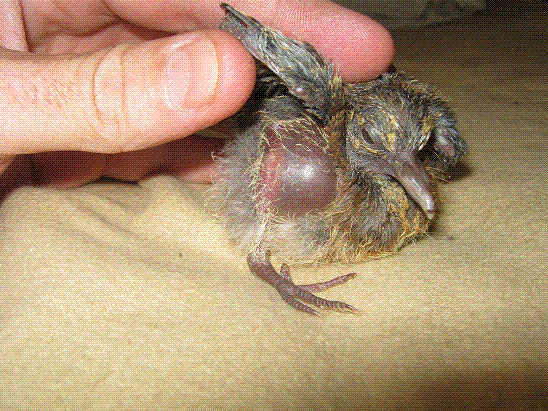 Baby Pigeon
Question
Cosmo
Hi Roger
We picked up a baby pigeon, ap
Baby Pigeon
Question
Cosmo
Hi Roger
We picked up a baby pigeon, ap
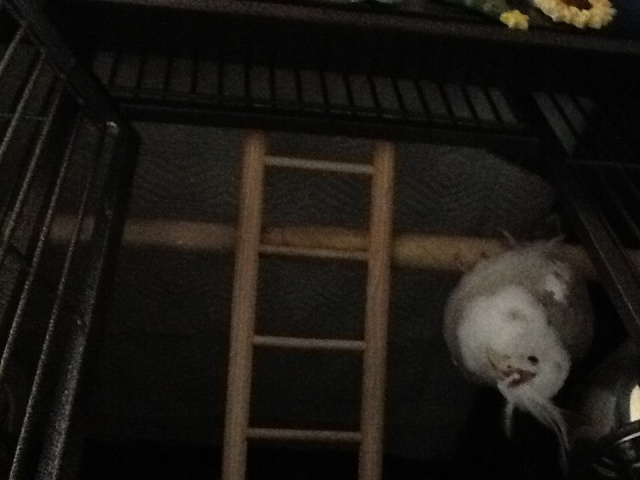 White faced cockatiel injury
Question
cockatiel injury
My 8 year old cockatie
White faced cockatiel injury
Question
cockatiel injury
My 8 year old cockatie
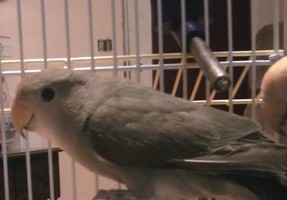 My odd lovebird
Question
Honey
I have a love bird that is approximately
My odd lovebird
Question
Honey
I have a love bird that is approximately
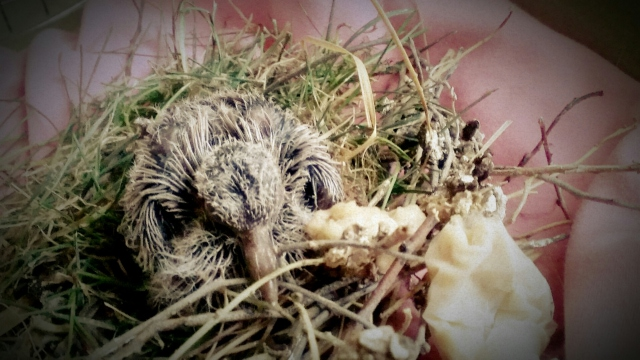 Baby Dove Care
Question
Baby Bird 1 Baby Bird 2
Hello, to
Baby Dove Care
Question
Baby Bird 1 Baby Bird 2
Hello, to
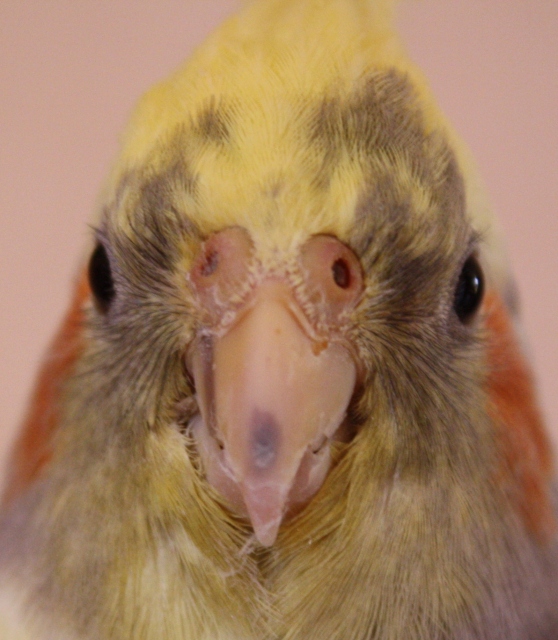 Bruise-like discoloration of beak (Cockatiel)
QuestionSasha
QUESTION: Our Cockatiel has develo
Bruise-like discoloration of beak (Cockatiel)
QuestionSasha
QUESTION: Our Cockatiel has develo